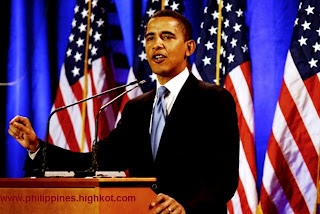The Betraying China lost its trust from all surrounding neighbors
While President Obama was telling America that “it is time to focus on nation-building here at home,” visitors from two Asian countries came to town reminding the administration that America is needed more than ever in their region as a counterweight to an increasingly assertive China.
On Thursday, Albert F. del Rosario, secretary of foreign affairs for the Philippines, was due to meet Secretary of State Hillary Clinton for talks that he told me and a couple of Post colleagues would “focus on territorial defense, given the challenges to maritime security.”
That’s code for China’s ambitious claims in the South China Sea, which have alarmed not only the Philippines but also Japan and Vietnam and other Southeast Asian nations.
“The situation is shaky out there,” del Rosario said during a visit to The Post. “The intrusions are getting more aggressive.” China, he said, has escalated its challenges in an area recently found to contain large deposits of natural gas: “From frigates firing on our fishing boats, they’ve gone to harassing our exploration boats to bringing in platforms and posts.”
As a result, del Rosario said he would be asking U.S. officials for “clarification” on whether the U.S.-Filipino mutual defense treaty extends to offshore territory and for help in obtaining new patrol boats.
The foreign secretary said that the United States should be as concerned as Asian nations are with China’s claims, because they could lead to China choking off free navigation. “China says there will be no problem,” he said. “If push comes to shove, will that benevolence continue?”
So how should the United States respond?
“We’re confident that, having neglected that part of the world for quite a long time, [the Americans] would like to reestablish their presence there,” del Rosario said.
Earlier in the week The Post’s Jason Ukman and I spoke with Japanese Defense Minister Toshimi Kitazawa, who was in town with the country’s foreign minister to meet with Clinton and Defense Secretary Robert Gates. Japan too has had run-ins with China in the South China Sea, and Kitazawa’s prescription was similar to del Rosario’s.
“If the United States strikes a firm position, by stating that the United States is going to maintain a strong position in the region, China will have to show restraint,” Kitazawa said.
In an unstable political situation in Tokyo, Kitazawa represents what passes for stability: He’s the only cabinet member to be holding the same position since what had been the longtime opposition party came to power in 2009. And he pointed out the significance of the government’s evolution over these two years, from questioning the U.S.-Japan alliance — as the opposition had done for half a century when it was out of power — to fully embracing it.
“That means essentially that political forces representing 80 percent of the Japanese people are now committed to this alliance,” Kitazawa said. “So the U.S.-Japan alliance is deepened further.”
There are a number of reasons Japan has come around to this view, including generous and quick U.S. assistance after the great earthquake in March and the continuing belligerence of North Korea. But the chief reason is China’s assertiveness, and the desire, shared throughout Asia, for the United States to play a balancing role.
Such a U.S. presence will be essential to the maintenance of peace, continued growth of trade and prosperity, and promotion of values important to America — such as freedom — and less cherished by China’s Communists. Presumably our Asian allies will be watching to see whether such a presence will also be compatible with Obama’s call to turn inward.











